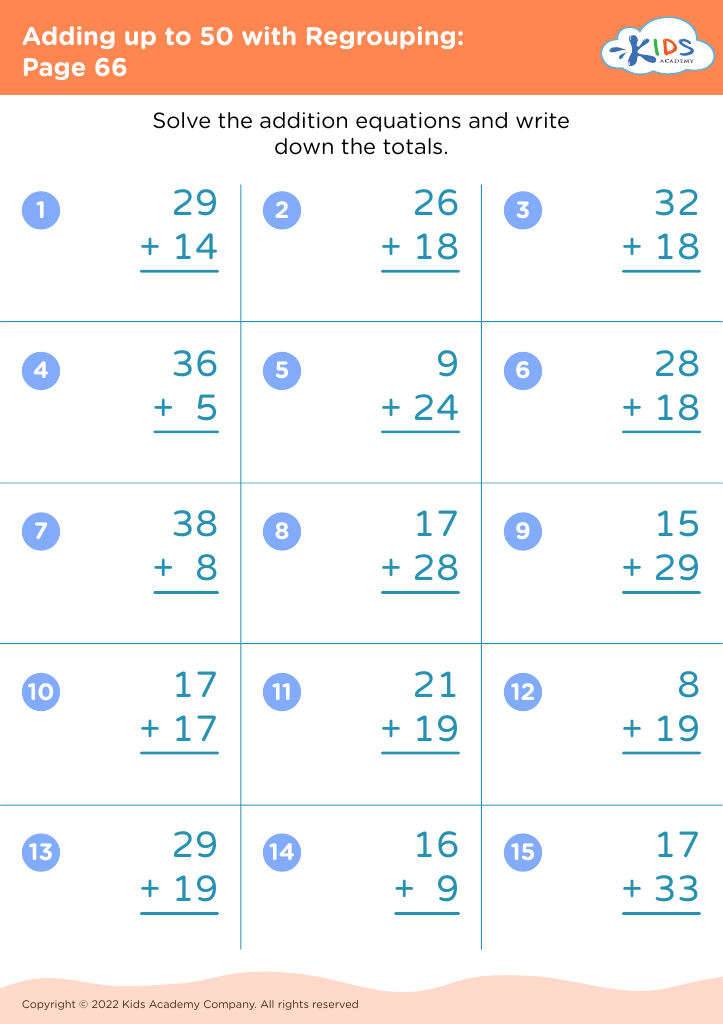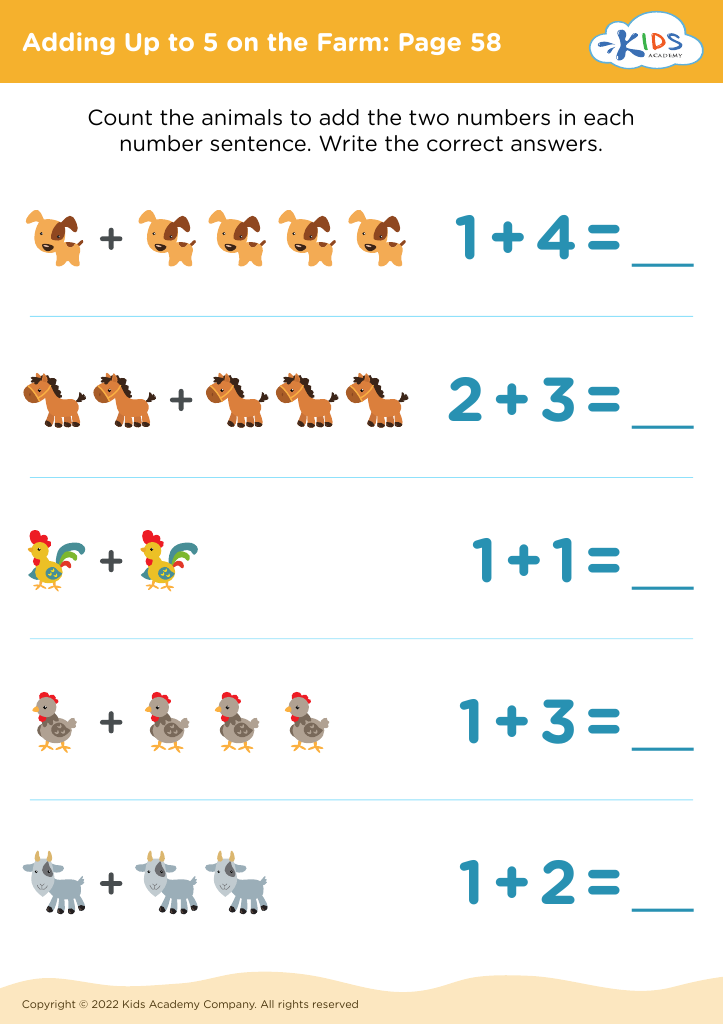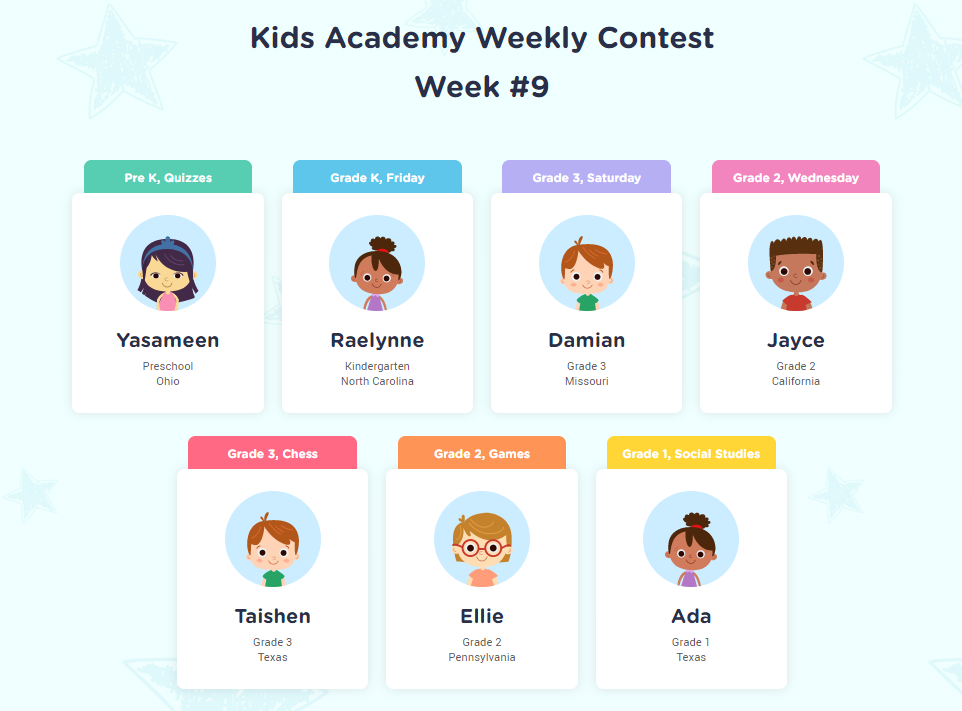Observation skills Worksheets for Ages 4-7
11 filtered results
-
From - To
Discover our engaging Observation Skills Worksheets designed specifically for children aged 4-7! These worksheets help young learners enhance their attention to detail, improve focus, and develop critical thinking skills through fun and interactive activities. Featuring vibrant illustrations and age-appropriate tasks, your child will enjoy exercises that promote visual discrimination, pattern recognition, and comprehension. Perfect for home or classroom use, our observation skills worksheets foster not only learning but also encourage curiosity and creativity. Empower your child's learning journey with our carefully crafted resources, helping them to become attentive observers and confident problem solvers. Start exploring our collection today!
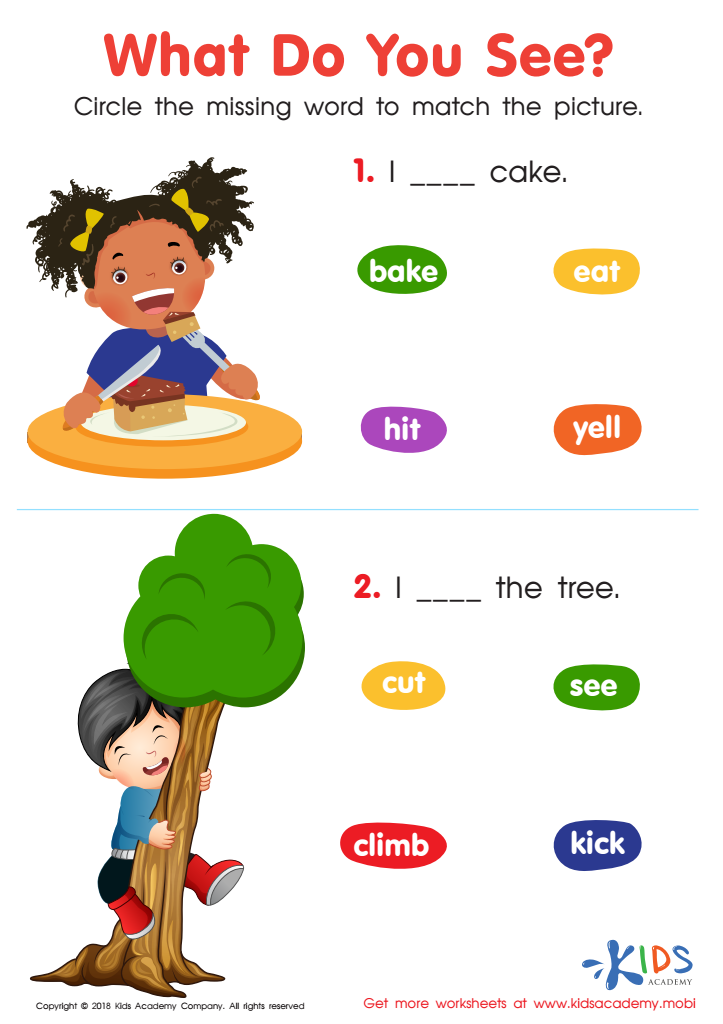

What Do You See? Reading Worksheet


Matter: Assessment 1 Worksheet
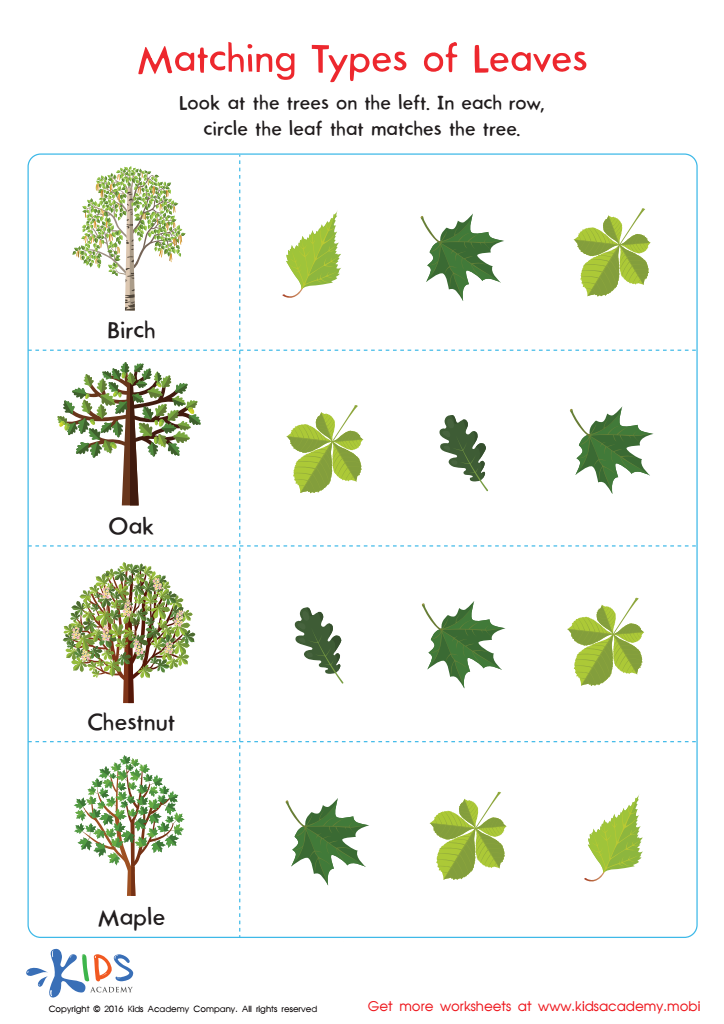

Matching Types of Leaves Printable


The 5 Sense Scientist Worksheet
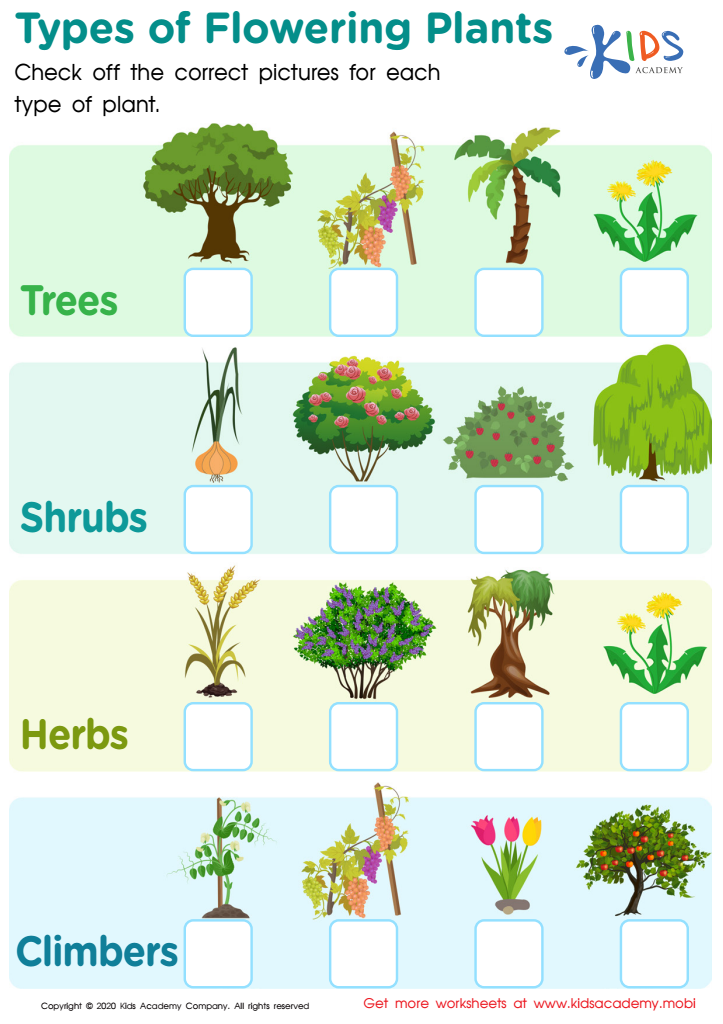

Types of Flowering Plants Worksheet
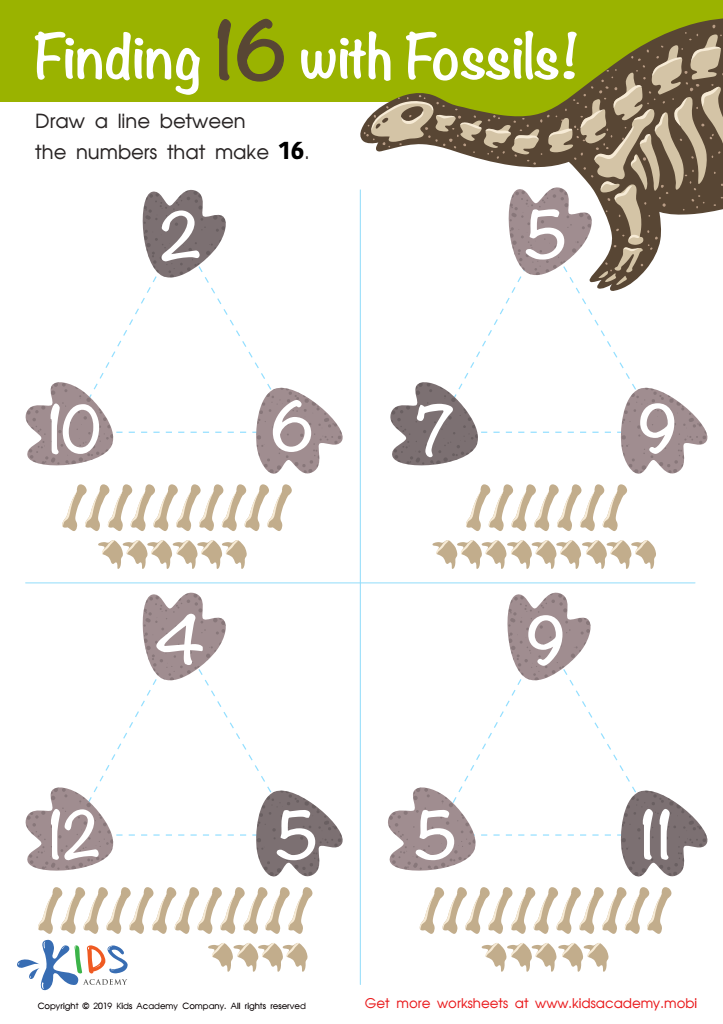

Finding 16 With Fossils Worksheet
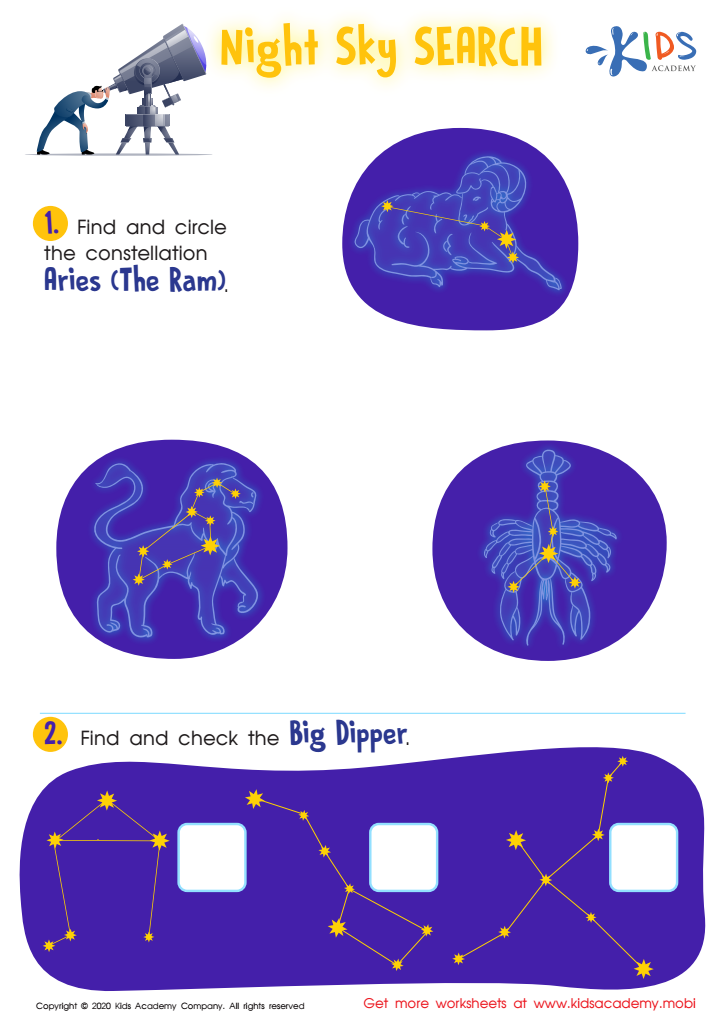

Night Sky Search Worksheet
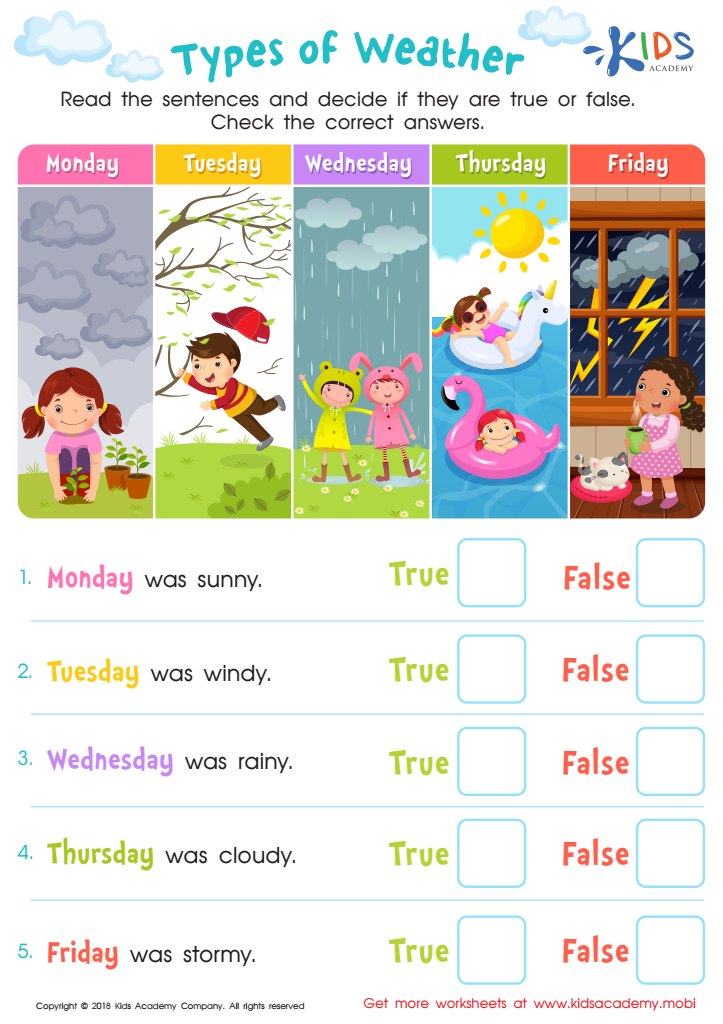

Types of Weather Worksheet
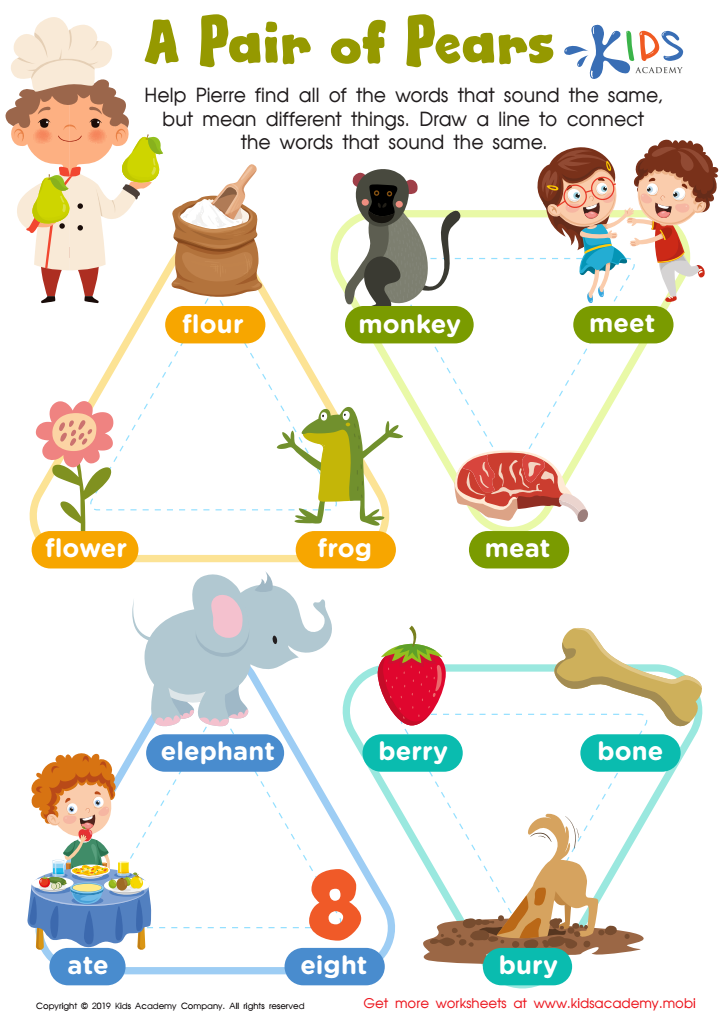

Pair Pears Worksheet
Observation skills are essential for children aged 4-7, as they play a foundational role in cognitive, social, and emotional development. As children observe their environment, they learn to interpret social cues, understand relationships, and engage with their surroundings more curiously and critically. Parents and teachers should prioritize nurturing these skills because keen observation fosters problem-solving abilities and enhances creativity, which are vital for academic success.
Furthermore, strong observation skills help children develop empathy and emotional intelligence by assisting them in recognizing and responding to the feelings of others. This is especially critical in these formative years when friendships and social interactions become more complex.
In educational settings, enhanced observation allows teachers to assess students' learning styles, strengths, and areas that may require additional support. This tailored guidance ensures that each child receives the help necessary for their unique growth.
Moreover, by advocating for observed interactions, parents and teachers model a attitudes of attentiveness and respect for the nuances of life, instilling these values in children. Ultimately, cultivating observation skills enriches a child's learning journey and prepares them for the ever-evolving landscapes of education and social kinship. It creates well-rounded individuals who can navigate various dimensions of life effectively.
 Assign to My Students
Assign to My Students

